Book Review: The Last Days of Magic by Mark Tompkins
A review copy was provided by the publisher in exchange for an honest review. All opinions are my own.
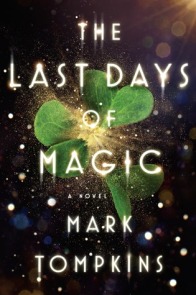 The Last Days of Magic by Mark Tompkins
The Last Days of Magic by Mark Tompkins
Mogsy’s Rating: 4.5 of 5 stars
Genre: Fantasy, Historical Fiction
Series: Stand Alone
Publisher: Viking (March 1, 2016)
Length: 400 pages
Author Information: Website | Twitter
Diving into a debut novel is always a bit of a gamble, but it can also prove exciting and extremely rewarding—especially when a book ends up surprising me or blowing away all my expectations. These are the moments I live for and this is exactly what I felt with Mark Tompkin’s The Last Days of Magic, a breathtaking historical fantasy saga about mysticism and mythology through the ages.
I am absolutely in love with this novel and its premise, which posits that magic is real but merely forgotten, suppressed and denied. Today we dismiss the tales of the Sidhe as nothing but folklore and legend, but just a few centuries ago humans co-existed with all kinds of supernatural creatures, and in no other place was that bond stronger than in Ireland, the last bastion of magic against the encroaching powers of the Vatican Church. Much of island’s strength comes from the protection of its patron deity the Morrígna, a goddess whose three aspects come together to rule over the Celts and the Sidhe. One of Her aspects resides in the Otherworld as a source of power, while the other two—known as Aisling and Anya—are always reborn in the mortal realm as identical twin girls.
The book begins with the introduction to the last incarnations of the twins Aisling and Anya in the autumn of 1387. But just days before their ascendance ritual to become one with the Goddess, disaster strikes. Without the assurance of the Morrígna on their side, fears begin to rise and alliances start to break down, leading to a weakened Ireland and a fractured Middle Kingdom, which is the home of the Sidhe. Taking advantage of this instability, the Vatican prepares to rid the world of its last remnants of magic by using the forces of King Richard II of England to invade. Thus the story is as much about Aisling and Anya as it is about their protectors, and about Jordan, a mercenary turned Vatican commander who arrives on the shores of Ireland to find that the magic is not all as it seems.
When I’m promised epic historical fantasy, this is exactly the kind of book I’m looking for, pushing the boundaries of multiple genres by blending medieval history, Irish legends, and even Biblical elements. Other religions were mostly stamped out during the Christianization of Europe in the Middle Ages, which serves as the backdrop for The Last Days of Magic. But while this by itself has been a theme in many works of fiction about why real magic has passed from this world, what I find interesting here is foundation for the origins of all supernatural creatures. In this book, magical beings like the Fae (which are typically associated with paganism, earth spirits, and nature worship) also have their roots in Christianity, so that the Sidhe (faeries like the Skeaghshee, gnomes, pixies, fire sprites, leprechauns, dryads, etc.) along with the Elioud (banshees, imps, sirens, goblins, giants, etc.) are all branches of the Nephilim, offspring of humans and fallen angels. Tompkin’s portrayal of the trinity goddess Morrígna as Anann, Aisling and Anya to bring all Irish Fae and humans together adds even more layers to the land’s mysterious and ancient magical customs.
At first, all of this can be a little confusing, and the author’s somewhat pedagogical style also has a tendency to be distracting. He inserts a lot of historical detail, though this isn’t really a criticism since most of the time I find the information helpful and educational. Of more concern is probably the non-linear storytelling. While each chapter is labeled chronologically, within most of these sections are multiple time skips and flashbacks, and it took me several chapters to grow used to this rhythm. Once I got it down though, the story really took off.
Soon enough, this book had me completely captivated. In light of my observations about the writing, I was actually a little surprised at how quickly I took to the characters. I wouldn’t have thought Tompkin’s seemingly didactic style would translate all that well to deep and engaging characterization, but in truth his storytelling is remarkably expressive. There are a lot of players in this book, some fictional and some not, but they are all shaped very convincingly by the story’s events. This is especially true of Aisling, who had her entire worldview ripped away from her on the day she lost everything she loved. Her tale is a tragic one, but after a while Jordan also emerges as a more prominent figure. His role to seek knowledge goes a long way in transforming the narrative by giving it a more hopeful tone. I also enjoyed seeing how everything that happened in this story was placed in a historical context, including all the magically-infused scenarios—a testament to the amount of research that must have gone into the writing of this novel.
All that’s left to say is bravo! The Last Days of Magic is everything I want in a historical fantasy, offering a tale that sparks the imagination and explores the multilayered relationship between truth and myth. Mark Tompkins has created an incredible world filled with vivid characters, capturing the complex nature of faith, love, and conflicting loyalties. A stunning, evocative debut.
![]()
![]()






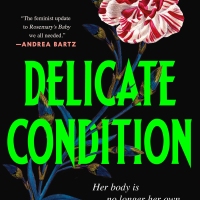

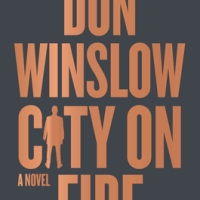
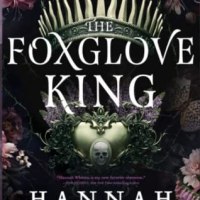
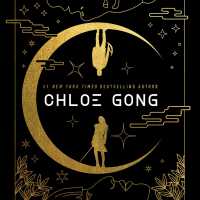
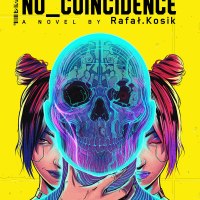
Ok, I love books with Fairies. So, I have to read this! 😀 Great review.
LikeLike
There were faeries galore in this! And really cool origin story for them too 🙂
LikeLiked by 1 person
I went out and bought this book tonight. I hope it breaks my reading slump!
LikeLike
Ok, completely intrigued. This seems to package up a number of things I’m interested in. Great review!
LikeLike
Thanks! And that’s how it was for me, I love the great mix of genres 🙂
LikeLike
Sometimes it works for me, sometimes not
LikeLike
Same goes for me – I was actually a little nervous about this one with all the time jumps, but once I got the rhythm down, it was smooth sailing.
LikeLike
Ooooooh, this sounds awesome.
LikeLike
I loved it! It might not be for everyone, but the fantasy and history aspect worked for me 🙂
LikeLike
I’d just heard about this book the other day and wasn’t too sure about it. Some of the reviewers weren’t too keen on all of the historical information, even calling it “info-dumping” sometimes. But it looks like you didn’t have a problem with that…?
Then again, I should probably read it anyway for the fairy novel market research project. It’s worth a try, right?
LikeLike
The author does have a tendency to insert historical details and also do a lot of “flashbacking”, so I can definitely see how this can be considered info-dumping. I personally didn’t have a problem with it, though as I said in the review, I have an interest in the historical details. If you don’t though, then yeah I can see it might be a struggle!
If your project focus is on faerie “origins” in fantasy fiction, this might actually be a really cool one to look at. The idea involves Biblical mysteries and fallen angels/Nephilim, which I thought was pretty neat. It’s only an element of the wider story though, so I don’t know if you’ll want to read it just for research.
LikeLiked by 1 person
OK. I think I’d be able to handle that.
When I say “market research,” I’m not really looking for more information on fairies / the Fey themselves. (I’m all set with the world-building / research aspect.) The project is more or less to see how different authors portray fairy characters in their novels, and to see how mine might be different or similar to what’s already out there. Hence why I’m calling it “market research,” so I know what to compare my own story to when I describe it to people in the future. 😉
LikeLike
Ah, I gotcha. In that case, Mark Tompkin writes with a more historical, almost “educational” tone, so his fae reflect that – it’s probably not a style that will work for everyone, but I did find it very unique, and I love that “community of fae” feeling! There are kind fae, nasty fae, high fae and low fae, just a human society, and I thought it was neat how it differed from the Fae Court theme that I’ve seen in other books.
I understand now, though wow, that’ll be a lot of books to read for your research! And happily, lots of good fae books to choose from too 😀
LikeLiked by 1 person
^^ Oh YAH. There are tons of fairy stories out there. I’ll probably keep the project “open” until I start querying the novel. (Which… might be next year? I don’t know, because I’d rather the novel be ready when it’s ready, not when I want it to be ready.) I’m sure I’ll still read fairy novels after that, but at a more leisurely pace and not necessarily for this project.
But yes, I think I’ll have to read The Last Days of Magic, because it’s new and because of its fairies. 🙂
LikeLike
Sounds like an interesting blend – and I do enjoy non-linear storytelling, so this might be right up my alley… Thanks for a great, thoughtful review!
LikeLike
That was probably my biggest issue with the book – it took me a while to get used to the jumping around! But if you enjoy it, you won’t have trouble at all 🙂
LikeLike
I’d had this one pre-order but some preliminary reviews caused me to cancel. However, I dig your opinion enough to reconsider this. I do love a good historical fantasy novel. It’s a sub-genre that definitely needs all the support it can get these days. Wasn’t that long ago that Black Gate (I think) published an article demonstrating how doomed to failure most historical fantasy novels are. Perhaps it was Locus. I forget. It was all numbers and stats on publishing trends in Fantasy. Anyways, nice review. Sounds like a good read. Think I’ll pick up a copy.
LikeLike
I had not seen that article, though now I’m interested to check it out. I wonder what the reasons are that “doom” them? I’m guessing they’re not doing as well in terms of sales figures, but I wonder if it also reflects a greater reluctance of readers to pick up the genre in recent years.
Anyway, thanks for your kind words! I suppose if I have to give my two caveats about this novel, it would be 1) the time jumps, and 2) the distracting insertions of historical details. The preliminary negative reviews I saw mostly focused on the latter info-dumping, so if you’re a reader who prefers your historical fantasy loaded with lots of facts, you’re probably going to have a better time than one who doesn’t. I hope this book ends up working for you if you decide to pick it up! 😀
LikeLike
This sounds great – I actually would enjoy the historical aspects. And, I love the cover! I shall add to my wishlist.
Lynn 😀
LikeLike
The cover is beautiful! When the hardcover showed up, I was mesmerized by the gold shimmering flecks 😀
LikeLike
Oh, this sounds so good!
LikeLike
I really want to read this, I was tempted to request for review, but my Feb/March pile was just too much. But definitely one for the purchase pile soon!
LikeLike
Pingback: Stacking the Shelves #1 | WEEZLED
I don’t read a lot of historical fiction, but this sounds wonderful.
LikeLike
Pingback: Bookshelf Roundup: Stacking the Shelves & Recent Reads | The BiblioSanctum
Pingback: Top Ten Tuesday: Top Ten Favorite Debuts of 2016 | The BiblioSanctum